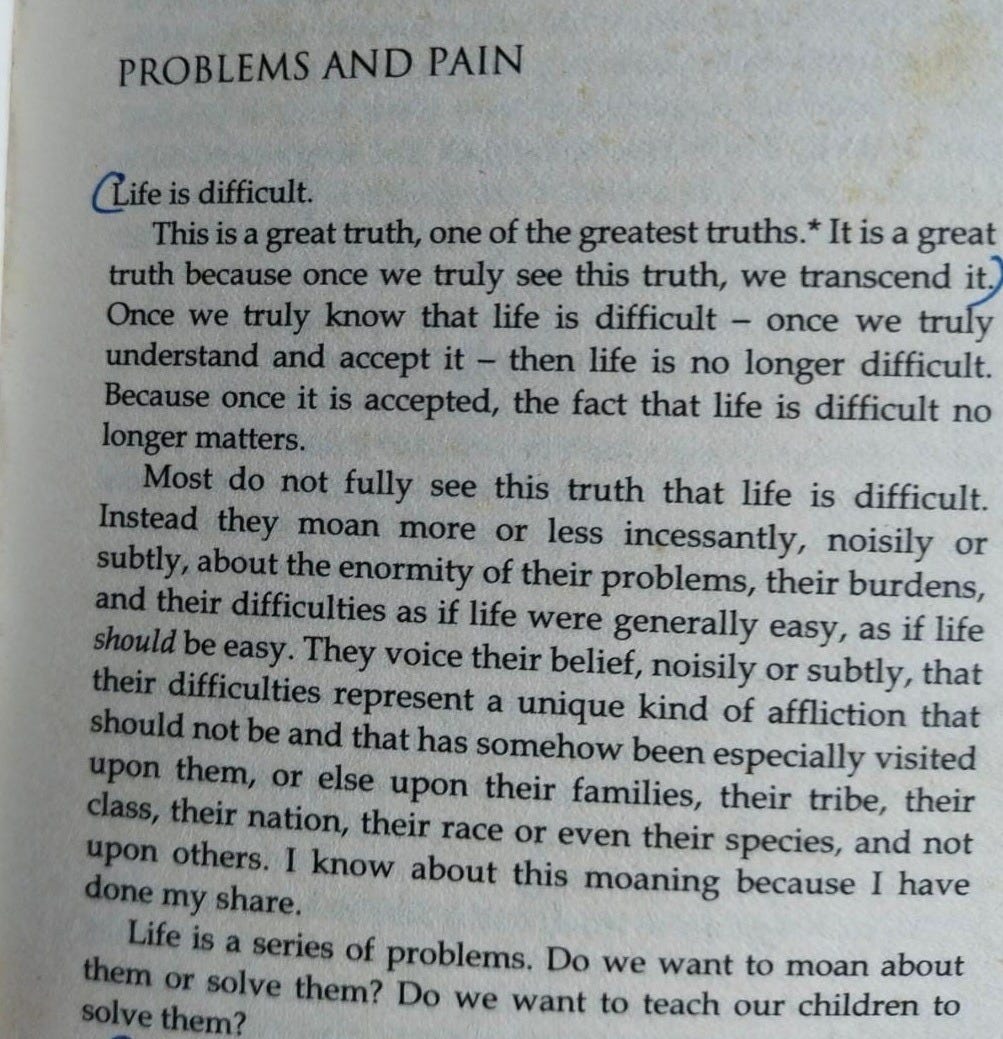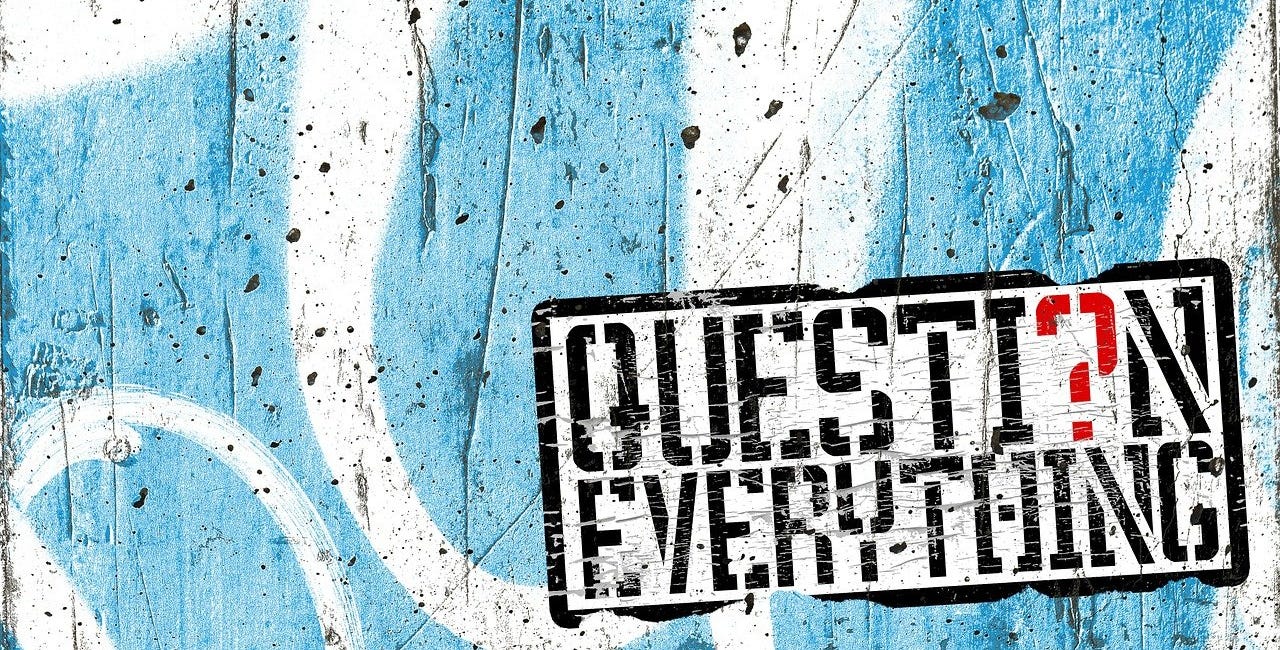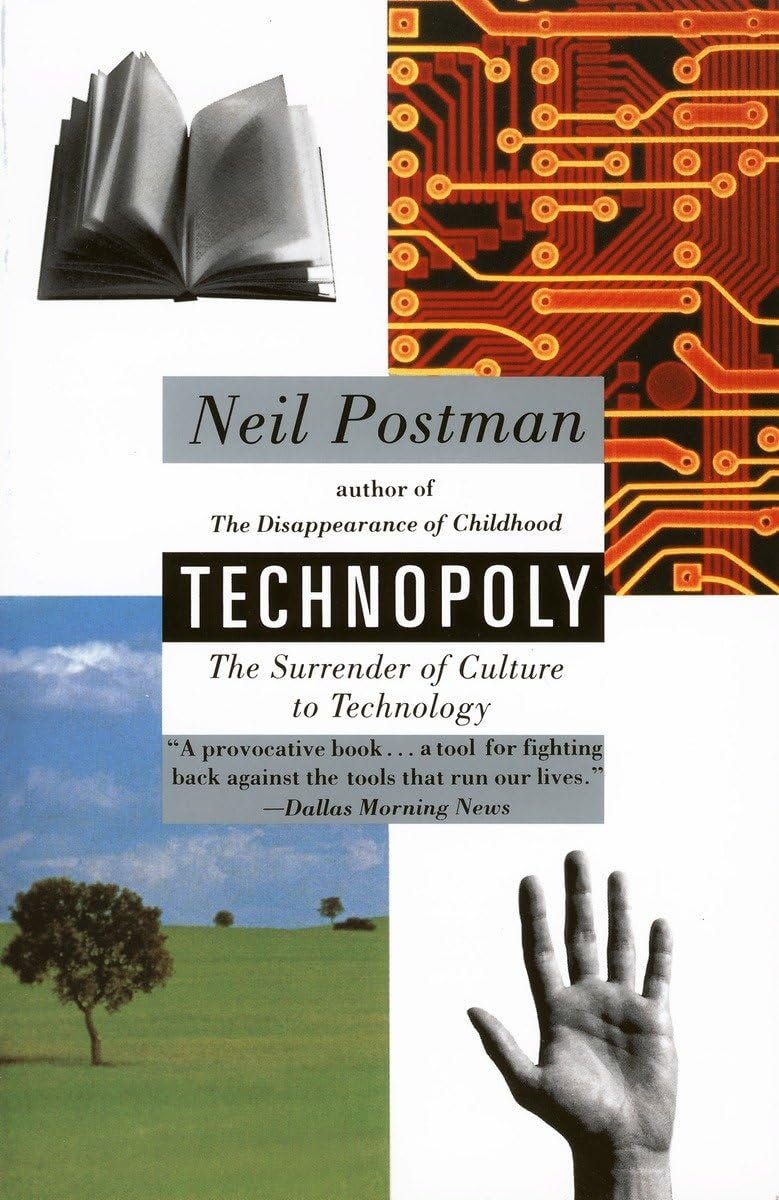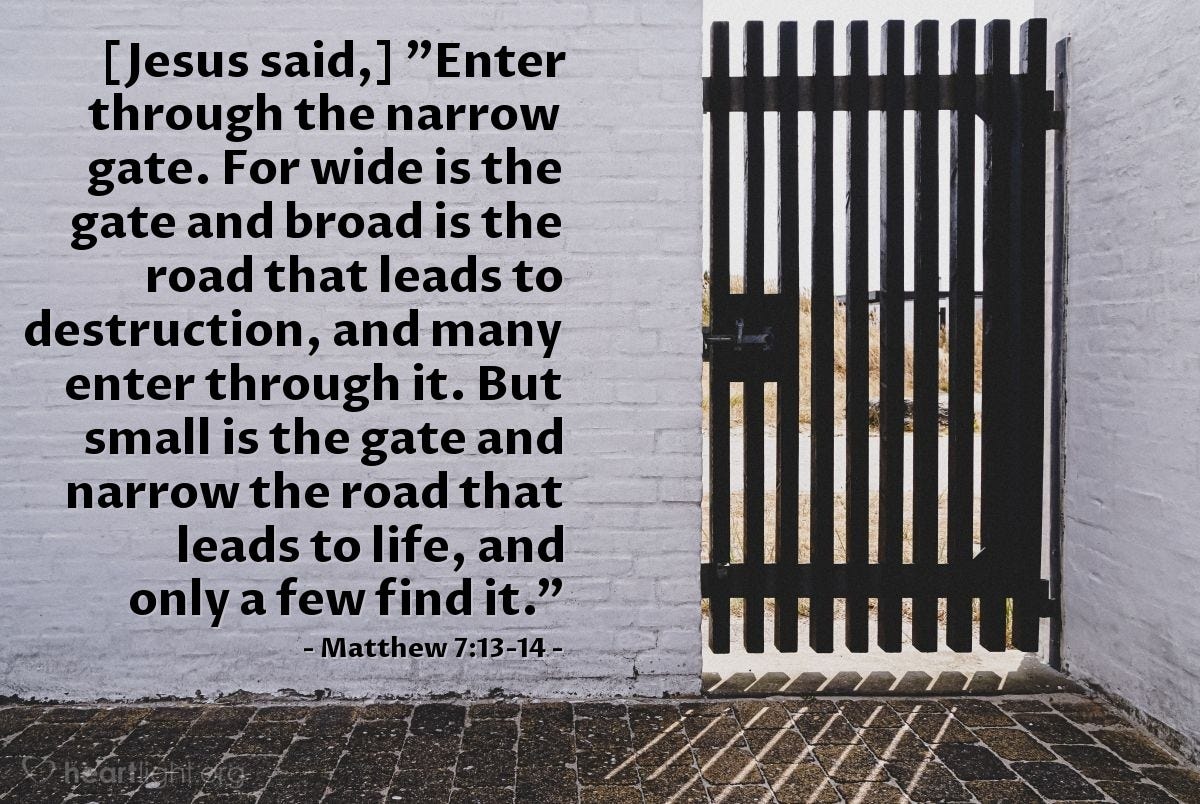#NotJust Ready To Learn The Hard Way
Reflections on Why Learning Should Be Hard!, #NotJust Allowed To Be Hard
Hello Dear,
A few weeks ago in One Doubt Please, we asked a question: How Easy Should Learning Be?
We proposed three potential answers to the question, as given in the above article.
We left the third answer unsaid, and said that we will take it up in a future article. So here I am, and here we are, to explore what this third, and in my opinion, creatively contrarian answer is. And how it could be helpful to us, in all spheres of life. Since hey, isn’t learning fundamental to life, something which is necessary in all arenas of our being and becoming?
The Process Is The Learning
Let us begin from what is probably an unlikely place. Tell you what, day before yesterday, I got very excited and inspired😊, while rereading a book titled “Teaching as A Subversive Activity”, written by Neil Postman and Charles Weingartner, in the year 1969. In a chapter titled “The Medium is The Message, Of Course”, the authors write:
“The medium is the message” implies that the invention of a dichotomy between content and method is both naïve and dangerous. It implies that the critical content of any learning experience is the method or process through which the learning occurs.
In other words, we could say that:
The Method or The Process Is The Learning.
I think this point should be fairly self-evident, once we spend some time to patiently reflect on it. Let me share with you what could be just one illustration of this principle. Say, my daughter comes to me asking a doubt. What should I do? Should I give her the answer immediately? Well, it would appear that this would be quite efficient a process - and to the casual observer, this is what is most likely to make life - and learning - easy for my daughter. And even for me - apparently - as hey, my daughter’s doubt stands answered or disposed of and both of us could now get on with other matters.
Really? Are matters that easy, and simple? In many (but not all) cases, we can see that the answer is no. If I just give - and hence give away - the answer, am I making the best possible contribution to the learning and development needs of my daughter? And, true to the spirit of Marshall McLuhan’s maxim “The Medium Is The Message”, what message or messages am I sending, by adopting such a process?
“Life is Easy”
Let us tackle the last question first. Here are some messages which I think such a process of giving away the answer would give. One, that my daughter - and in general, the student - does not need to do much thinking or take much effort in arriving at the answers. That they are likely to be available at the student’s bidding, with little or no effort. Once this kind of a process is made into a consistent pattern and a part of the culture of education, it would also convey this same message about life itself. It would signal to the young student that life itself is supposed to be rather easy, with readymade solutions to any or at least most problems which come our way. A quite dangerous lesson - and precisely the kind of lesson we do not want our children to learn. Isn’t it?
Very interestingly, we can see that a lot of avoidable human pain and suffering is precisely because it is quite late in life that many of us learn that life is not easy, that it is hard. Here is how M. Scott Peck puts it in his 1978 book The Road Less Travelled.
Thus, we see that spoonfeeding the answer, as it were, actively hinders the very process of “growing up” of our children - of transforming, in time, from a child to an adult.
“Life is Just What Happens to Us”
Another closely related message we give when we supply a fully-baked answer is that the answers are given or that they are to be given, that too from others, especially from people and institutions in positions of power and authority. Yes, this kind of a top-down approach could discourage and kill individual agency. By handing down an answer and asking or demanding that the student accepts it, the authority-driven pedagogy conveys the message that the learner has little or no role in discovering the answer. Which itself is a potent tool and method of oppression, repression and suppression.
I think it is this thinking which later manifests in our culture as blind conformity to established ways of doing, being and becoming. Yes, we can say that many of us at both individual and institutional levels become bystanders, adopting a passive stance to change and reform. In other words, we become a bystander society, adopting the view and convenient fictional belief that life is just what happens to us, and not for us to shape, mould or create.
#NotJust "Following": A Case for Thinking, Reflection and Listening
Reflections on the need for thinking for ourselves, for engaging in shared reflections on our shared past, present and future
We tend to ignore the potential harmful consequences of this lesson, only at great peril to us and our future. An extreme example of the negative effects of a passive attitude to life is what transpired in Nazi Germany. In her book Bystander Society: Conformity and Complicity in Nazi Germany and the Holocaust, Mary Fulbrook argues how “conformity and compliance with a repressive regime could, over time, turn into complicity and even involvement in perpetration”.
Isn’t it unfortunate that many of us, even when we reach what society regards as highly powerful and exalted positions of authority, continue to behave as fierce defenders of the status quo, taking the easy route, the path of least resistance, resigning ourselves to “fate”, and not taking the action we need to take to make a dent in human affairs, even if it is within the small sphere of influence each one of us has? In fact, it is #NotJust even when, but often, especially when we are in high and powerful positions. Which brings us to the next lesson we convey to our youngsters, through a top-down approach.
“Seek To Impress, Not Express”
As the authors of Teaching as A Subversive Activity point out, most of the questions which teachers ask in class are what might be called “Guess what I’m thinking” questions. By promoting a culture where the students are “expected” to give the answers which the teachers and other authority figures want them to say, our education paradigms encourage our young and impressionable minds to play the game of impressing others, rather than expressing themselves. We thus teach our children to impress, rather than to express themselves truthfully, to speak their mind.
Needless to say, these lessons transmitted by our culture to our children die hard and get solidified into forms which are much less innocent and much more harmful, no less to our society and humanity itself. One example with sweeping effects is the deeply ingrained culture in our social institutions where the people in them believe that their bounden duty is to do what is “expected” and “desired” by people “above” them in position, power and authority.
Why say more…just two days ago, I was having a conversation with some colleagues, when one of them said in essence that he can change his arguments and his opinions on file notings whichever way his seniors desire. So, if I as his senior want to harm someone, he will make a case for it accordingly; if I want to help someone, he will do that as well, by building a case for it, by highlighting different set of facts and / or by interpreting the facts to suit this desired conclusion. I had to take some effort to tell him and others present in the meeting, that I absolutely do not want them to do any such thing. I told them that we are all “civil servants” and are supposed to be so, and that we are all called to give our own independent and best judgement, based on facts, and the letter and spirit of the rules and the law, in every situation. And that we should do our duty without fear or favour.
Here is an earlier One Doubt Please article on this theme.
#NotJust Obedience: Does(n't) our Duty Require us to Question as well?
Reflections on the nature and meaning of our duties at work and in life, and what this means for our relationship with power and authority
“The One Right Answer”
Here is another message which the top-down educational approach imbibes in the learners. It is #NotJust that the right answers to be given are the desired and expected answers. Perhaps more importantly, it is that there is what known as a right answer, to begin with, for every question. We know that what we call “real life” rarely admits such a single answer to most or at least to a lot many questions it poses. To do anything meaningful, we have to wrestle with a diverse set of challenges and viewpoints, which demands that we are creative, patient and open enough to explore multiple solutions and solution approaches, often at once and in parallel.
In other words, we need to have our ethical values and moral principles in place, we need to have the clarity and courage to do the right thing and stand for what is right, but at the same time, within that framework, we should have sufficient flexibility and openness to embrace multiple perspectives and answers. A focus on the expected and the right answer could hence be detrimental to the cultivation of such an approach which is open to continual learning and experiences.
“It’s About The Right Answers”
A closely related yet fundamentally different concern is the focus of a top-down education system and of our conventional pedagogical approaches, on answers rather than on questions. When our focus is on securing good marks by giving the right answers, when there are “model answers”, our attention becomes on somehow getting to the answer. In my interactions with people in various walks of life, both children and adults, at work and outside work, I witness a lot of impatience when the answers are not forthcoming, when one is instead prodded to stay on with the questions.
It is almost as if we are allergic to questions. As if they are inconsequential, and only a means to the answers. This approach tends to make learning into a materialistic exercise, pursued purely for material ends. However, in so doing, we forget that even from a materialistic perspective, questions are at least as important as the answers. Yes…
It is more important to ask the right questions, than to have the right answers for the wrong questions.
So, we need to build a culture where our students and learners, i.e., all of us, are encouraged to ask good and better questions, rather than merely run after the right answers to given questions. Given below is an earlier One Doubt Please article, on the unnderrated role of questions in our lives.
#NotJust Answers: Are(n't) Questions at least as Important?
Reflections on the role and value of questions in our lives; and why we need to search for #NotJust answers but for questions also, even old questions!
It is for this reason that in #NotJust my life, I give supreme importance to questions. At least, I think so, and I want to do so. I am happy to recall what a colleague at office told me a few weeks ago. She was telling me that every time she comes to discuss any professional matter with me, it feels as though she is being interviewed, and that with this experience, she feels she will be able to face any interview in future. Expressing my pleasant surprise on her remark, I replied that I do believe in the power of questions.
OK, so far, we have looked at five different yet related messages and thought-philosophies conveyed by a top-down and apparently easy approach to learning, where the teacher is all too eager to provide the answers. We have further argued that these messages and philosophies of thought are not just not suitable in preparing the student for life, but also that they are often directly misleading and harmful as well.
And lest we not forget, we started walking down this path of exploration, in trying to answer the question of how easy or difficult learning really should be. Let us come to this now…
Why Learning Should Be Hard!
Armed hopefully by our reflections on the underlying messages propagated by the learning process or method, we now come back to the point where we started. As observed earlier in this article:
The Method or The Process Is The Learning.
It then follows that:
The harder the method or the process, the more and the better the learning; the easier the method or the process, the less the learning.
What say? Is that a fair inference? Methinks so.😊
As Neil Postman and Charles Weingartner say in their book on teaching and education, the real “content” of any learning experience is not the subjects “covered”, but the learning process itself. Given this, the quality of learning is directly determined by the quality of the learning experience. And the harder and more challenging the experience, the more of our innate creative energies, mental and physical efforts and inspiration it is likely to demand, bring forth and manifest.
Morgan Housel makes the same point in his book Same As Ever: Guide to What Never Changes. Let me quote an excerpt from a chapter titled “It’s Supposed to Be Hard”.
Harvard Business Review once pointed out to Jerry Seinfeld (American comedian and actor) that part of the reason he ended his show was writer burnout. The magazine asked if he and show cocreator Larry David could have avoided burnout and kept the show going if they used a consulting company like McKinsey to create a more efficient writing process.
Seinfeld asked if McKinsey is funny.
No, the magazine said.
“Then I don’t need them,” he said. “If you’re efficient, you’re doing it the wrong way. The right way is the hard way. The show was successful because I micromanaged it—every word, every line, every take, every edit, every casting.”
Housel underlines and reiterates the following point:
“If you’re efficient, you’re doing it the wrong way.1”
Housel adds that this “so counterintuitive” insight perfectly highlights the danger of shortcuts. Yes…
By cutting learning short, shortcuts reduce the quality of the learning that occurs.
I think the phenomenon is visible in most areas of our technologically-dominated modern culture. Yes, our modern life is both blessed and afflicted, one could say, by a craze for shortcuts - be it in parenting, cooking, purchases, workplace productivity, politics, governance and much else. We have tools which provide us shortcuts to various activities. However, in adopting such tools, we have become slower learners, our learning in those fields for which we adopt shortcuts has come down.
To give an everyday example, in using Google Maps, I think most of us tend to become less effective in learning the directions of the areas we navigate in. Sure, the tool does help us in many ways; my point simply is that, in taking this help, in availing this service, which benefits us in some ways, we do incur a loss in other ways. In this case, in the form of our reduced learning and understanding of the territory. The same point could be and should be made about any and all tools and technologies. Indeed, this point has already been made very eloquently, by Neil Postman, in his excellent book Technopoly, explaining how our culture has surrendered itself to technology.
Before we sign off, let me share two short videos of Jensen Huang, the founder and CEO of Nvidia.
“I wish upon you greatness…i.e., plenty of pain and suffering”. - Jensen Huang
“The ability to endure pain and suffering is what makes people stand out”. - Jensen Huang
I am happy to recall that I too have written on this, in an earlier article on One Doubt Please.
#NotJust Sufferings: Are(n't) they Blessings too?
Reflections on the age-old condition and phenomenon of human pain and suffering, and our eternal quest to find life and meaning in, through and beyond them
And how can I forget, that Jesus too has invoked us to enter through the narrow gate…
"Enter through the narrow gate. For wide is the gate and broad is the road that leads to destruction, and many enter through it. But small is the gate and narrow the road that leads to life, and only a few find it." - The Holy Bible, Gospel of St. Mathew, 7:13 - 14
Ok, so from where did I get this creatively contrarian insight that learning should #NotJust allowed to be hard, but also that it should be hard? I got this insight from my nuptial father or in other words, my father-in-law, Mr. Francis P. Pittappillil. It is to him that I dedicate this article. 😊
Fine then…we have argued that learning should be hard. But hard, in what way? What will be the form this hardness will and should take? In other words, even if we agree that learning should be hard, the question remains, as to how the learning should be designed, so as to make it as memorable, fruitful, helpful, enlightening and inspiring an experience as it should be.
I believe the ideas shared in this article do offer many clues to the above questions. Nevertheless, I hope to delve more into these questions, in future articles of One Doubt Please.
So, what do you think? Do you also think, do you agree, that learning should be hard? What are your thoughts? I would like to hear from you, in the comments or otherwise. Thank you! 😊













